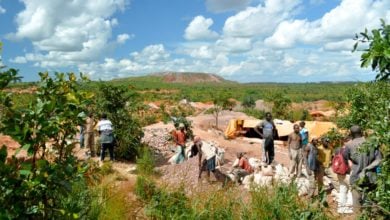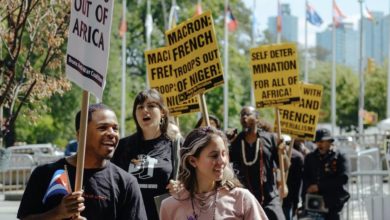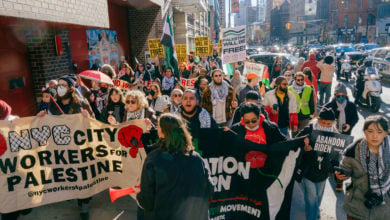On Nov. 14, the South African parliament voted 230-41 to legalize same-sex marriages. South Africa becomes the fifth country in the world and the first in Africa to affirm the right of gays and lesbians to marriage equality.
This comes almost a year to the day after the South African Constitutional Court ruled that lesbians and gays had to be
 |
The lesbian and gay community inside and outside of South Africa heralded the bill as a step forward in eliminating institutionalized discrimination against LBGT people.
The South African Joint Working Group, a national network of 17 LGBT organizations, issued a statement on the day of the ruling. It read, “The Joint Working Group … welcomes the historic step taken by Parliament to allow lesbian and gay people the choice to get married. Unlike earlier versions of the Civil Union Bill, the statute that has been passed no longer creates a separate category for lesbian and gay people exclusively but rather broadens the institution of marriage to include same-sex couples.”
The struggle for LBGT liberation has been an important part of the South African national liberation movement, which started with the struggle against the U.S.-supported apartheid regime.
Lesbians and gay men have been and continue to be active participants and leaders of the people’s organizations—the African National Congress, the South African Communist Party and the COSATU trade union movement—fighting to build a society not just free of racial discrimination, but free of sexual and gender discrimination as well. The ruling ANC ordered all members of its representatives in parliament to vote for the bill.
When the political infrastructure of apartheid was dismantled and a new constitution was written, an entire section was dedicated to ensuring all forms of equality. This section, Section 9, outlaws all discrimination previously present under apartheid. Sub-section three reads, “The state may not unfairly discriminate directly or indirectly against anyone on one or more grounds, including race, gender, sex, pregnancy, marital status, ethnic or social origin, colour, sexual orientation, age, disability, religion, conscience, belief, culture, language and birth.”
The passage of the recent same-sex marriage bill reflects the struggle to address the vestiges of the old racist system. It affirms progressive developments under the new political and economic conditions.
Before it takes effect, the bill must be passed by the National Council of Provinces and then signed by President Thabo Mbeki. It is expected to clear both hurdles with ease.
The bill paves the way for civil marriage and religious marriage officers to marry same-sex couples. It does not, however, mandate those religious institutions or individuals whose beliefs do not support marriage equality to conduct ceremonies.
The bill also regrettably permits civil marriage officers to refuse to marry lesbians or gay men if doing so conflicts with their personal beliefs, indicating the need to continue the struggle for LGBT liberation.
Melanie Judge of OUT, a member of the Joint Working Group, summed up the meaning of the bill’s passage: “This has been a litmus test of our constitutional values. It forced us to consider: What does equality really mean? What does it look like? Equality does not exist on a sliding scale.”





